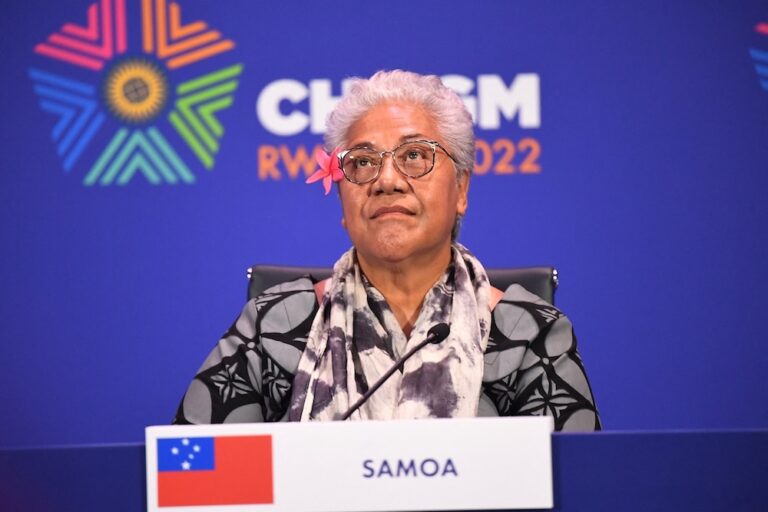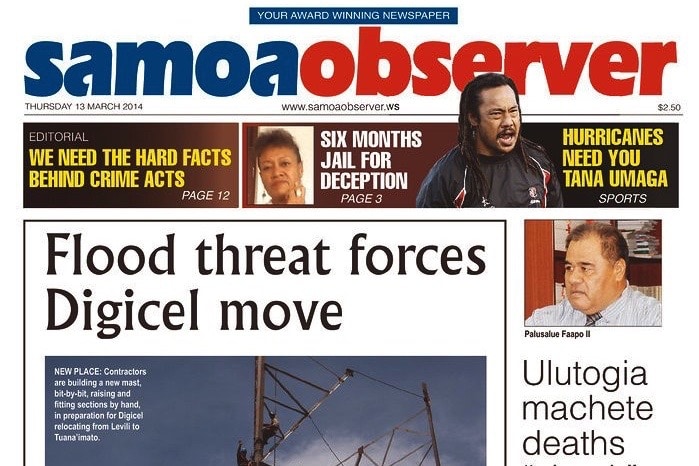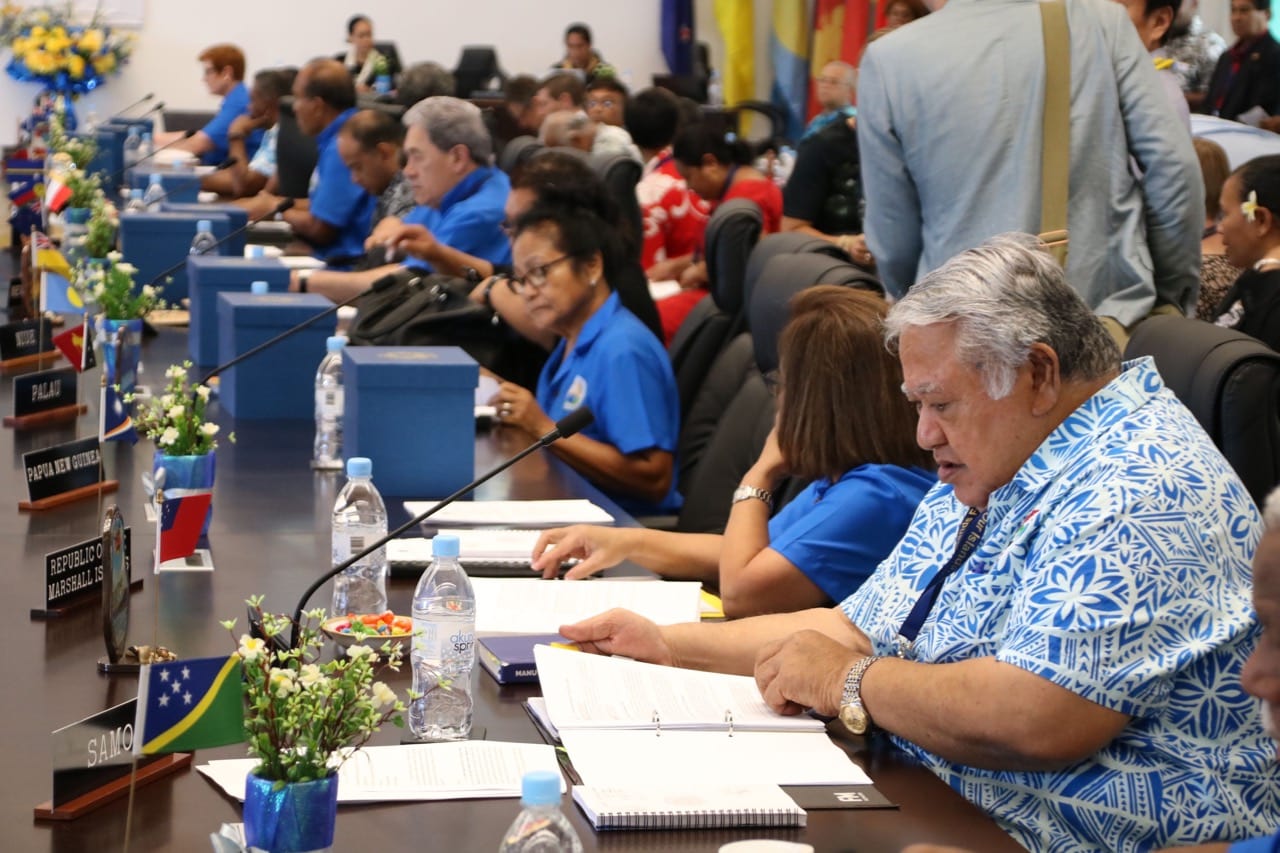(PINA/IFEX) – “Samoa Observer” editor-publisher Savea Sano Malifa said on 13 July 1998 that he may have to sell the newspaper after losing a civil defamation action brought against him and the newspaper by Samoa’s Prime Minister, Tofilau Eti Alesana. It came after the release of a judgment by the Samoan Supreme Court in Apia […]
(PINA/IFEX) – “Samoa Observer” editor-publisher Savea Sano Malifa said on 13
July 1998 that he may have to sell the newspaper after losing a civil
defamation action brought against him and the newspaper by Samoa’s Prime
Minister, Tofilau Eti Alesana. It came after the release of a judgment by
the Samoan Supreme Court in Apia awarding Tofilau $WS50,000 (approximately
US$16,000) in damages. The civil action is separate to a charge of criminal
libel of Tofilau which Malifa and his Samoan-language section editor face
and which is due to be heard on 27 July.
**Updates IFEX alerts of 22, 20 and 14 May, 30 April, 11 March 1998; and 24,
15, and 4 December, 18 November, 31 October, 12 September and 24 May
1997**
In a faxed message to the PINA Secretariat in Suva, Malifa said he has
already had to pay $WS230,000 (approximately US$76,000) in legal fees while
the Prime Minister’s legal fees of $WS783,000 (approximately US$261,000) are
being paid from public money (see IFEX alert of 20 May 1998). “The request
for the $WS783,000 for the Prime Minister’s legal fees was made by the
Government in the 1998-99 budget tabled in Parliament last month”, Malifa
said. “And as the Government has the two-thirds majority in Parliament, the
budget passed with ease.” He added: “The cost of these legal actions is
frightening. This cannot be justice.”
Malifa was cross-examined for three days by Tofilau’s lawyer, a Queen’s
Counsel brought in from overseas. Acting Supreme Court Justice Sir Gordon
Bisson, a retired judge from New Zealand, said in his judgment Malifa “did
not impress me as a witness.” He said Malifa “fell far short of the truth
and resorted to a malicious defamation of the Prime Minister. At times he
refused to face reality and was evasive.” He said Malifa persisted in pleas
of “justification, fair comment and fair and accurate report … when the
second defendant must have known all along that those pleas were without
merit.” Tofilau did not give evidence and under Samoa’s defamation laws was
not required to. “In other words we defended ourselves not knowing how the
plaintiff had been defamed”, Malifa said in his faxed message.
On 8 July 1998, the “Samoa Observer” reported that Opposition Leader Tuiatua
Tupua Tamasese called the funding of Prime Minister Tofilau’s legal costs
from public funds unconstitutional. “This decision breaches freedom of
speech guaranteed in the constitution”, Tuiatua was reported as telling
Parliament. “The Prime Minister does not worry about money because the
Government is paying. Whether it wins or not since it is paying for its own
legal fees the “Observer” is bound to be hurt financially. And if this is
what will be happening to newspapers, their freedom to express themselves as
required by the constitution cannot be protected. This is because the Prime
Minister and other government officials will keep on suing them for
defamation knowing well they do not have to part with a cent of their own.”
Background Information
The “Samoa Observer”, which was founded by Malifa and his wife Jean, is
Samoa’s only daily newspaper and main independent news voice. In recent
years Samoa’s independent news media and journalists have faced increasing
pressure after highlighting stories alleging growing corruption and abuse of
public office. The “Samoa Observer” printing plant was burnt down under
highly suspicious circumstances; Malifa was assaulted by relatives of a
government minister; government advertising was withdrawn from the
newspaper; threats were made to impose newspaper licensing; and a law was
introduced requiring journalists in libel actions to reveal their sources.
The “Samoa Observer” and its staff currently face criminal and civil libel
actions. Government ministers have also discussed withdrawing the license of
the country’s only independent radio station which carries news bulletins.
The government-run national radio and TV services are heavily
government-controlled and the government restricts the Opposition’s access
to them (see IFEX alerts).


